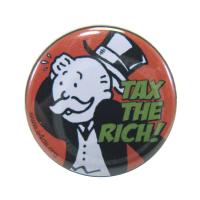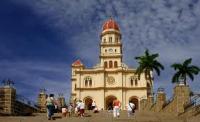An Interview with Lisa Lyons
Which came first, your interest in politics or your interest in cartooning?
They actually began together, when I was 13 or 14, with a badly drawn, over-the-top, heartfelt diatribe against my mother’s consumerism. Even though I was just a white, middle class teenager in Connecticut, I was indignant about inequality and injustice.
How did you get started as a political cartoonist?
review
Amid twinkling fingers and Guy Fawkes masks, few were pining for central committees. Occupy’s emergence was welcomed. The movement galvanized radicals, bringing the language of class and economic justice into view. Yet an unwarranted arrogance underlined the protests. Occupy, in part a media event that mobilized relatively few, was quick to assert its novelty and earth-shattering significance.
review
Teachers and teacher unions have been under neoliberal attack since the Carnegie Foundation’s 1983 Nation At Risk. However, since the appointment of Arne Duncan as Obama’s Secretary of Education they have been on the sharp-end of the neoliberal attack on working people. Teachers are routinely demonized as ineffective, privileged public employees who are virtually unaccountable.
review
It’s unsurprising why Trotskyists were annoyed by this book. In one section it depicts a bearded and bespectacled leftist intellectual, in an impeccable illustration, lecturing protesters who are engaged in a confrontation with police that: "I’ve come to show you how to fight capitalism." Under his arm, is a book with "Trotsky" emblazoned across the front.
review
The New Left Organizes the Neighborhood
In June 1966, protesting the shooting of James Meredith, the solo freedom marcher, Peggy Terry was among the crowds in Greenwood Mississippi who, in response to Stokely Carmichael’s question "What do you want?," had roared "Black Power! Black Power!" While others were bewildered, Terry recalls "there was never any rift in my mind or my heart. I just felt Black people were doing what they should be doing.
review
Literature and Revolution in Latin America
In Redeemers: Ideas and Power in Latin America, Enrique Krauze is interested in all of the most romantic figures of the modern left in Latin America, those who lived as militant missionaries, often died as martyrs, and were canonized by the left as saints, men like José Martí, Che Guevara, Subcomandante Marcos, and Hugo Chávez.
review
With the emergence of anarchism as a significant ideology on the contemporary left, the idea of socialist-anarchist dialogue on political issues and socialist-anarchist alliance and cooperation on issues of mutual concern has gained significant currency on the socialist left. Socialist-anarchist alliance was raised rather gushingly by Ursula McTaggart in her article, "Can We Build Socialist-Anarchist Alliances?
"When they broke through the front line, up there, we only had 4 or 5 hours to leave the village. We left in a hurry, a bag on our shoulders, to save our lives."
Duško looks up at the hill behind his house. On September 15, 1995, when Vozu´ca in the adjacent valley fell, he abandoned all his belongings and became a refugee. Over two million people, during the war in Bosnia Herzegovina (BiH), from 1992 to 1995, suffered the same fate.
Bikernieki forest on the outskirts of Riga is where the three to five thousand Jews who had managed to survive starvation, the freezing cold, and random executions of the Riga Ghetto were put to death in 1941. Not long after, the same fate would be met by some 30,000 additional Jews from numerous cities in Germany, Austria, and Czechoslovakia who had in the intervening months been transported there to be temporarily warehoused in the newly vacant ghetto.
A new edition of Marxism in the U.S. seems to have come at a propitious historical moment not only for global society but also for phenomena that can still, with many reservations, be called Marxism, Marxist ideas, Marxist-based projects. The particular crises at hand, economic, social, political, and ecological, are so numerous and fast-breaking that headlines are likely to overtake specifics even before words reach print. But crises they are.
NP: For four years we’ve had an African-American president, and that has led some people to argue that we are living in a post-racial society. What do you think of this argument?
Optimism is the prozac of the sociological imagination. Indeed, several of sociology’s founders were disaffected children of Baptist ministers who substituted millenarian ideals with the secular version of a heaven on earth. The men of the Chicago school conceived of sociology as a secular eschatology that would be an instrument of social amelioration. What’s wrong with that, you might be thinking? Nothing at all — except when it leads to a false optimism where we look upon the world through rose-tinted glasses.
In the first days of October, NYPD Officer Kenneth Boss had his gun returned to him by Commissioner Ray Kelly after 13 years. Boss was one of four officers charged with the 1999 murder of 23-year-old Amadou Diallo. Diallo died in the vestibule of his apartment building in the Soundview section of the Bronx in a hail of 41 police bullets, 19 of which penetrated his body. Boss’s weapon was found to have fired 5 rounds.
In contrast to the intense euphoria so widespread in 2008, the dominant emotion in the run-up to the 2012 election was fear, a well-founded fear of Republican savagery. Once the results were in, rather than entertaining hopes for a brighter future, most Democratic voters were probably just relieved. Obama was swept back into office chiefly by a coalition of blacks, Latinos, unionized workers, youth, and low income Americans—that is, by the very people who have suffered most from the policies of his administration.
 Taxing the rich has a venerable tradition on the left. It is, after all, one of Marx and Engels’ ten transitional demands in the Communist Manifesto, later to be declared antiquated in their 1872 preface to the document.
Taxing the rich has a venerable tradition on the left. It is, after all, one of Marx and Engels’ ten transitional demands in the Communist Manifesto, later to be declared antiquated in their 1872 preface to the document.
 The influence of the Catholic Church in Cuba is growing, a recent and unanticipated development. Why? Has there been a big religious revival that has filled the Church pews? Not really. So, if there has not been a major increase in Catholic religiosity, why has the Catholic Church become important? For entirely political reasons.
The influence of the Catholic Church in Cuba is growing, a recent and unanticipated development. Why? Has there been a big religious revival that has filled the Church pews? Not really. So, if there has not been a major increase in Catholic religiosity, why has the Catholic Church become important? For entirely political reasons.
 Introduction: On December 31, 2011 President Barack Obama signed into law the National Defense Authorization Act (NDAA) of 2011.
Introduction: On December 31, 2011 President Barack Obama signed into law the National Defense Authorization Act (NDAA) of 2011.
 Lenin’s name is not one usually associated with freedom of conscience. Was he not the doctrinaire sectarian who brooked no difference of opinion? Did he not trample over his own convictions in the callous quest for power?[1] Careful consideration of his texts reveals a very different picture, one in which he struggles to articulate a radical freedom of conscience.
Lenin’s name is not one usually associated with freedom of conscience. Was he not the doctrinaire sectarian who brooked no difference of opinion? Did he not trample over his own convictions in the callous quest for power?[1] Careful consideration of his texts reveals a very different picture, one in which he struggles to articulate a radical freedom of conscience.
Adaner Usmani: I wanted to begin by asking you about the history that precedes the crisis, and specifically about the evolution of European social democracy. On the one hand we have seen social democratic governments in Greece, France and elsewhere entirely complicit in the evisceration of the welfare state, and in the imposition of austerity. On the other hand, the tradition of which they’re a part brought many benefits to Europe’s working classes. The welfare state is a real achievement, after all, and it’s arguably held up better than many radicals argue. Certainly there’s a strong current of academic literature, known as the Varieties of Capitalism (VOC) school, which argues that its degeneration has been overstated.
Describing Dutch society and politics in 2012, sociologist Willem Schinkel used the metaphor of a museum.[1] Conservative and turned inward, Dutch society is afraid of change, fixated on something called "Dutch values." One expression of this is the right-wing, nationalist populism that since a decade stood in the center of Dutch politics and public debate. Social-economic policies were guided by an unquestioned acceptance of neoliberal principles. The elections of 2012 seemed a chance to break with this pattern.
 Taxing the rich
Taxing the rich The influence of the Catholic Church
The influence of the Catholic Church Introduction: On December 31, 2011 President Barack Obama signed into law the National Defense Authorization Act (NDAA) of 2011.
Introduction: On December 31, 2011 President Barack Obama signed into law the National Defense Authorization Act (NDAA) of 2011. Lenin’s name is not one usually associated
Lenin’s name is not one usually associated